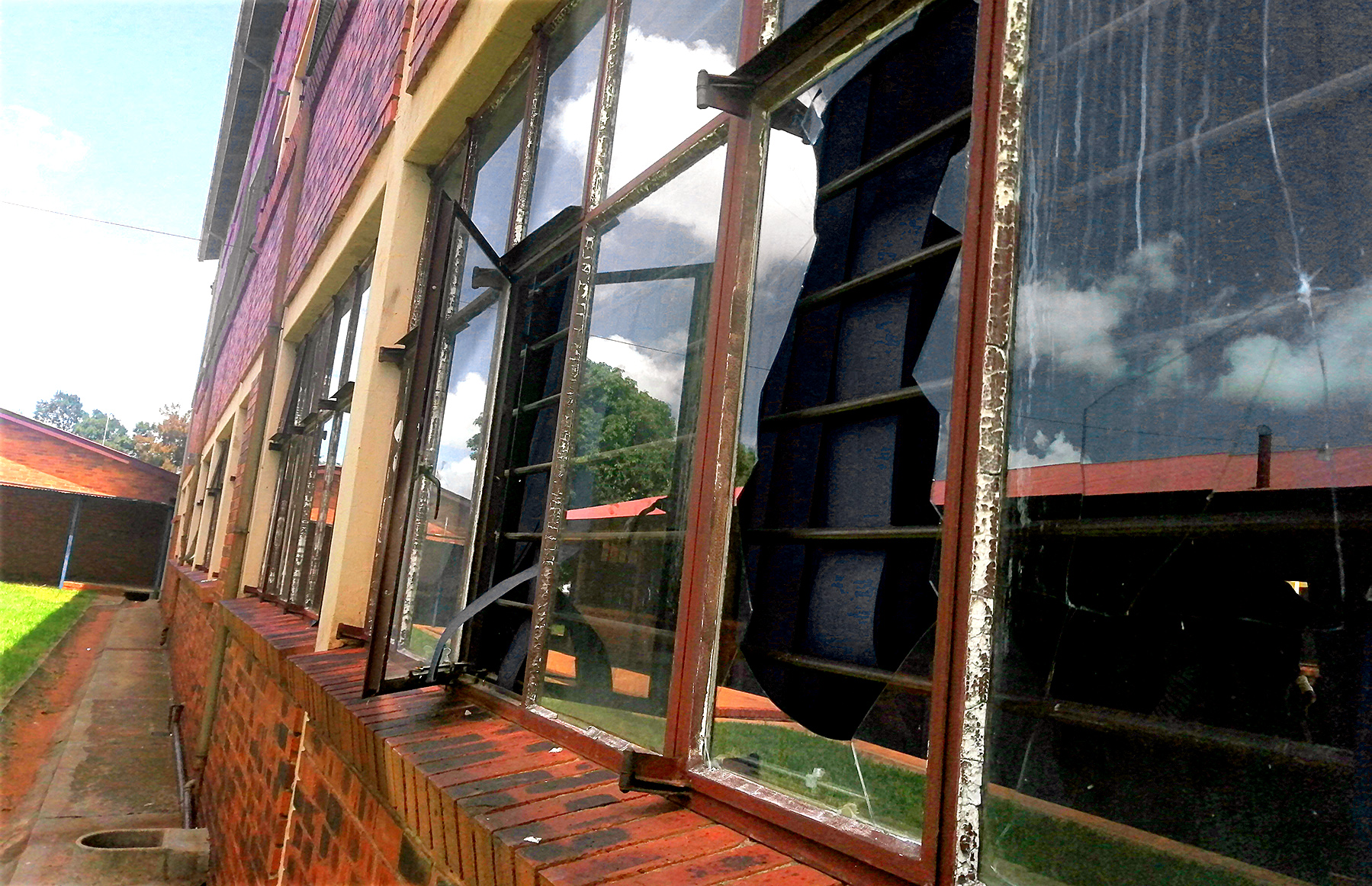Against a backdrop of severe overcrowding in Gauteng’s schools, Premier Panyaza Lesufi has pledged a renewed focus on the province’s infrastructure, with particular emphasis on education and social development.
Lesufi has committed to completing 28 new social infrastructure projects between 2024 and 2029, aiming to address the growing demand for educational facilities. However, the province has been grappling with abandoned and delayed school construction projects, leaving many communities in limbo.
“There is a shortage of schools in the province. A few years ago, the department stated that around 120 to 130 new schools were needed to alleviate overcrowding. Last year, the MEC [Matome Chiloane] said more than 300 schools were required. Recently, in January, the department claimed 4,000 satellite schools were available. However, when questioned, they clarified that only 15 would be built this year,” said Sergio Isa dos Santos, the DA’s shadow MEC for education.
“If you take 15 a year, it’s going to take 200 years to supply 4,000, but there’s definitely a huge demand for new schools in the province,” Dos Santos said.
He said the education department’s claim about 4,000 satellite schools was misleading — this was nearly double the number of regular public schools in the province.
“I’ve submitted questions to MEC Matome Chiloane,” he said.
Efforts to address classroom shortages and overcrowding
To address classroom shortages and expand learning spaces, the Gauteng Department of Education (GDE) has implemented several measures.
These include providing mobile classroom units, constructing satellite schools, and allocating funds for self-build classroom projects.
 The closed Finetown Secondary School in Johannesburg in May 2022. (Photo: Gallo Images / Fani Mahuntsi)
The closed Finetown Secondary School in Johannesburg in May 2022. (Photo: Gallo Images / Fani Mahuntsi)
The department has identified schools receiving an overwhelming number of applications. These are considered as “high-pressure schools”. The areas in which they are located are termed “high-pressure areas” – 292 primary schools and 277 secondary schools are classified as high-pressure.
The department said the introduction of satellite schools in 2025 was expected to provide more than 4,417 additional spaces in high-pressure areas. While some satellite schools were already operational, others were still under construction, the department said. As a result, some schools were operating above capacity while awaiting the completion of new facilities.
Update on school infrastructure projects
In response to legislative questions in September 2024, Gauteng MEC for Infrastructure Development Jacob Mamabolo provided an update on 17 incompleted schools. He said that while these projects were at various stages of construction, many had faced challenges such as contractor terminations, cash flow difficulties and security disruptions.
By February 2025, the Department of Infrastructure Development reaffirmed its commitment to completing 28 new social infrastructure projects, including 18 new schools. The department also plans to upgrade 12 schools and renovate 69 social infrastructure facilities, of which 56 were schools.






‘Lack of forward planning’
Dos Santos raised concerns about the lack of forward planning by the GDE and the MEC.
“There’s no real assessment of where high-density areas will be, and no proper plan to accommodate future demand,” he said.
The growing issue of overcrowding continues to strain Gauteng’s education system. Many schools are forced to accept more students than their intended capacity, often leading to overcrowded classrooms and additional mobile classrooms, which reduce space for learning and sports activities.
“Many schools are being pressured to accept new learners, even when they are already at capacity. Mobile classrooms are being introduced, which means schools are losing space and sporting facilities while still being asked to accommodate more learners,” Dos Santos said.
Across the province, this issue was becoming more apparent, Dos Santos said. During a visit to a school in Sedibeng, it was observed that the department had established a school without municipal approval, resulting in a lack of basic infrastructure such as water, sewerage and electricity. Some schools had been operating under these conditions for years, Dos Santos noted.
 Nomini Primary School after it was temporarily closed in 2020 due to clogged toilets and raw sewage flowing into classrooms. (Photo: Gallo Images / Papi Morake)
Nomini Primary School after it was temporarily closed in 2020 due to clogged toilets and raw sewage flowing into classrooms. (Photo: Gallo Images / Papi Morake)
Parents, teachers concerned
A parent, who wished to remain anonymous, shared their frustration with Daily Maverick ong the use of mobile classrooms in Gauteng. “I hate those containers with everything in me because they are not conducive for our kids. They (GDE) just need to build more schools because all the ones are filled up, and we are here struggling,” said the mother of a Grade 1 learner.
A teacher based in Pretoria, who preferred to remain anonymous, expressed frustration over the ongoing overcrowding and lack of resources in Gauteng’s schools. “Add more schools. We are overpopulated and the only way to address this is to build more schools,” she said.
Another teacher raised concerns about the shortage of teaching staff and funding, explaining that their school had two empty classrooms but no budget to hire more teachers.
“The department has advised the school governing body to hire teachers, but they struggle to raise the necessary funds as many parents cannot contribute enough to cover costs, let alone pay a teacher’s salary. Plus, the department has reduced the education budget, impacting everything from teaching staff to school meals. I hope they have a plan to hire teachers for these schools, otherwise it is pointless,” she said. At
Daily Maverick sent questions to Cogta, the Gauteng Department of Education and the Gauteng Department of Infrastructure Development. By the time of publication, no response had been received. DM




 Nomini Primary School after it was temporarily closed in 2020 due to clogged toilets and raw sewage flowing into classrooms. (Photo: Gallo Images / Papi Morake)
Nomini Primary School after it was temporarily closed in 2020 due to clogged toilets and raw sewage flowing into classrooms. (Photo: Gallo Images / Papi Morake) 